Tiberius Caesar Augustus was the successor of emperor Augustus of Rome, born on November 16, 42 B.C, to queen Livia Drusilla and Tiberius Claudius Nero, a Roman senator. They contributed to uplifting the crippling Roman economy and territorial expansion and improvising the military troops of Rome.
Livia, later on, divorced Tiberius Claudius Nero and married Octavian, formerly known as Emperor Augustus.
Augustus adopted him as the royal heir after persistent pressure and conspiracies from his mother, Livia, upon Augustus.
Germanicus, who was Augustus’s nephew, had to be put into the line of ascending throne after Tiberius due to his exemplary military competency.
However, Germanicus’s suspicious death made Tiberius the ultimate successor of Augustus.
Tiberius tried to keep up with emperor Augustus’s legacy, although his arrogance and debauchery negatively impacted the general Roman public.
He had brought in good reforms regarding the elevation of Rome’s financial status, potent military forces, and strict enforcements against Senators’ autocracy.
In 35 A, D, he made Gaius and Gemellus joint heirs to the throne and passed away on March 16, 37 A.D.
Where did Tiberius die?
Tiberius died of natural causes in Miseno, Italy, on March 16, 37 A.D.
Where is the memorial of Tiberius located?
Tiberius left behind only one monument in his name in Smyrna’s Greek city, located in present-day Turkey.
What did Tiberius do for Rome?
Tiberius brought many reforms into the Roman empire, which were regarded as unpleasant, while few were considered better.
For instance, he improvised military forces, Suppressed the Great Illyrian Revolt, and Established treason law and the Imperial cult.
The early life of Tiberius
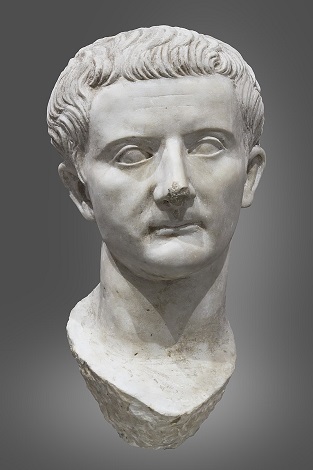
Tiberius was the firstborn of Tiberius Claudius Nero and Livia Drusilla, who later on married Emperor Augustus. Tiberius’s biological father passed away when he was just nine years old.
Tiberius had a keen interest in rhetoric, and he studied with his mentor Theodorus Gadara and Athenaeus the Peripatetic, and Nestor with the Academic.
Fluency in Greek dialect and Latin vernacular boosted his academics in early life.
He was renowned for showcasing an extraordinary civic career after prosecuting and defending Roman senates in the court for a charge of high treason.
In addition, Tiberius gained tribune’s power for five years as he investigated irregularities in grain supply in barracks for slaves.
Tiberius married Vipsania Agrippina in 19 B.C.E, with whom he had a son named Drusus.
But he was forced to divorce her and marry Augustus’s daughter Julia, the mother of three of Tiberius’s children: Julia, Germanicus, and Ti Gemellus.
Contributions for Rome
Tiberius brought many reforms into the Roman empire, which were regarded as unpleasant, while few were considered better.
Improvised military forces
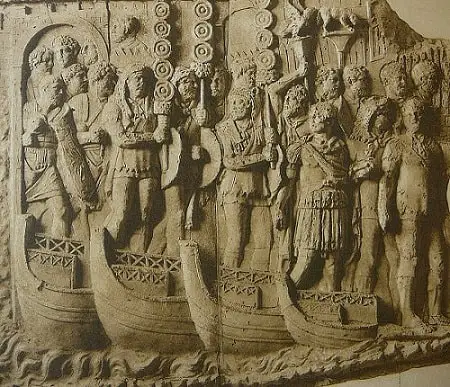
Tiberius had an excellent military career that helped with numerous Roman territory expansion campaigns along the Danube with the assistance of his brother Drusus during 4 A.D – 9 A.D.
Before he became emperor of Rome, Tiberius brought peace into the Spanish peninsula after ravaging the locals.
Likewise, he won back three Roman eagles after negotiations between the Parthians in Armenia in 22 B.C.
He went on wars alongside Drusus, primarily conquering Raetia after concentrating on tribal people of the Alps and Gaul who could no longer disturb Roman traders and communication in the mountains.
Tiberius enslaved long-haired Gauls and imprisoned around 4000 of the Germanic people.
Augustus has complete faith in him regarding territorial expansion. So he was responsible for annexing Pannonia, modern-day Austria, under the Roman regime, which resulted in a victory.
Suppression of the Great Illyrian Revolt
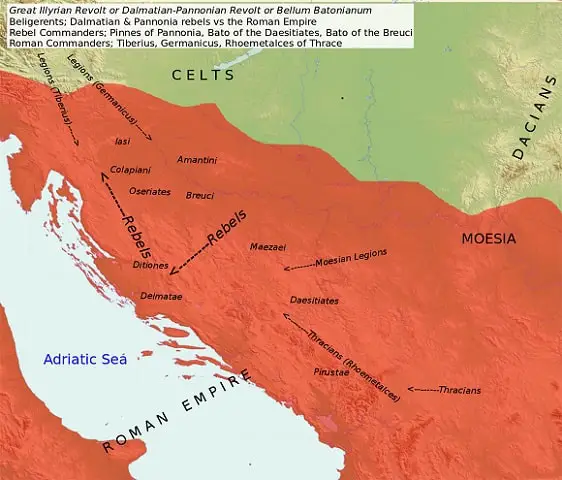
The Great Illyrian Revolt, also known as the Bellum Batonianum, was a series of military insurrections between the Romans and the Illyrians that lasted four years between 6 A.D and 9 A.D.
After the death of Julius Caesar, the Illyrians gained liberty from Romans refusing to pay taxes and destroyed five cohorts of the Roman army led by P. Valtinius.
Augustus was scared of Illyrian valor and feared their invasion of Italy, so he called for Tiberius in Illyrian lands.
Tiberius sent forward a troop commanded by Valerius Messalla Messallinus as he was given the tribunician powers for three years solely to suppress the Illyrian revolt and German pacification.
He was indeed successful in pacifying Germany, terminated after the battle of the Teutoburg Forest in 9 B.C.E.
The local tribes rebelled against the Romans under their tribal chieftain named Bato, defeating the Roman force. The rebels counted around 80,000, with 200,000 infantry aided by 9000 cavalries.
The rebellious forces were divided into three quarters to invade Italy, the Roman province of Macedonia, and their hometown, respectively.
They swiftly executed their plans, massacred Roman brutally, and seized Macedonia.
Bato, weary after multiple battles, faced Tiberius in Germania in an ambush as Tiberius stood on a solid foot and conducted a war of attrition, delaying the war, which displeased Augustus.
However, Tiberius’s conscience of counter-insurgency procedures proved beneficial for Rome in the latter days.
Tiberius finally quelled the Illyrian revolt in 9 A.D that left lasting effects on the Roman soldiers; however, it was a significant accomplishment of Tiberius for Rome.
Administrative skills
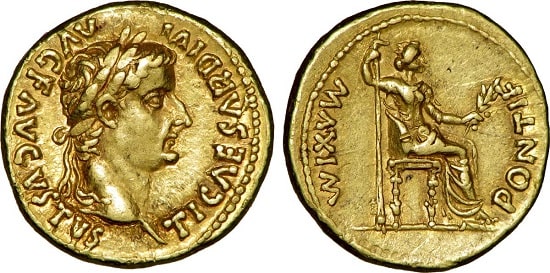
Tiberius was not only an experienced soldier but also an expert politician by the time he ascended the Roman throne.
He opened up himself as a peaceful king with no forces and signs of violence during the initial days of his reign.
He conducted bureaucracy quite well as his laws were patient and far-sighted.
Furthermore, he did not bother to attempt new military moves or even move armies that changed the governors without any valid motive.
Tiberius developed suitable bureaucratic measures to manage treasures cutting down on unwanted expenditures.
He eagerly tried to cut down corruption and eliminate administrative abuses in Roman governance.
He mitigated some queer rules like naming a month or place after him, unlike in the times of Julius Ceaser or Augustus, and strengthened the Roman naval forces.
Likewise, he also abandoned the prevalence of gladiatorial games.
However, he could not engage in military adventures as the previous emperor, Augustus, mismanaged the Roman royal treasury and led corruption to seep through.
Elevation of the financial status of Rome
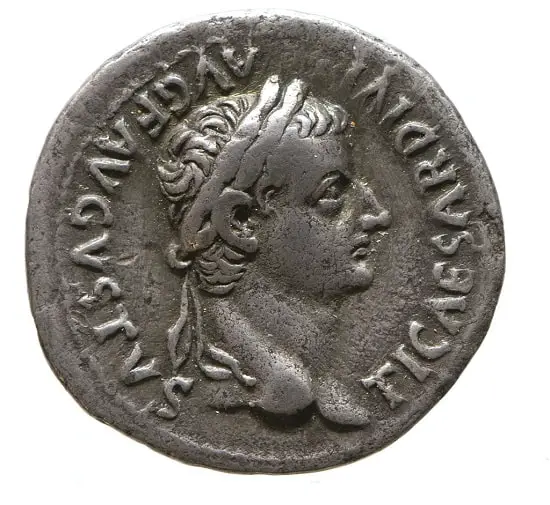
The Roman emperor Julius Caesar tried to manage high-interest rates and some contractual terms, but unfortunately, laws fell into tissue after decades.
Similarly, Augustus also did not contribute to relieving the condition just when Tiberius stepped in to solve the obstacle.
Tiberius brought in reform, including a grace period of eighteen months to resolve all the personal financial issues of the Senate to be per the law.
The credit crisis had plundered the Roman economy as creditors had invested two-thirds of their monetary funds in Italian lands, and the debtors had to pay back the same amount of loans.
However, the creditors demanded funds in total amounts causing debaters to pay back the amounts entirely.
Hence, all the debtors tried to sell off their lands, which eventually led to a decrease in the price of land.
So Tiberius came to the rescue as he distributed 100 million capitals in several chartered banks for a span of three yeast without charging any interest.
He helped each loan be secured for twice the value of land, restoring credit and gradually increasing the emergence of private lenders again.
It was very thoughtful of Tiberius to encourage a grace period rather than moving forward with prosecution, as it helped alleviate pressure on the debtors.
Not only this, but Tiberius also introduced the Imperial fiscal system to ensure that the Roman empire remained solvent and legions were paid timely.
In addition to it, he forbade Roman senators to make excessive tax demands on the public from his famous statement, “shear my sheep don’t flay them.”
Through his thoughtful and far-sighted vision, Tiberius laid a foundation for Rome’s tremendous lucrative and prospering economy in the first century A.D.
Established treason law and Imperial cult
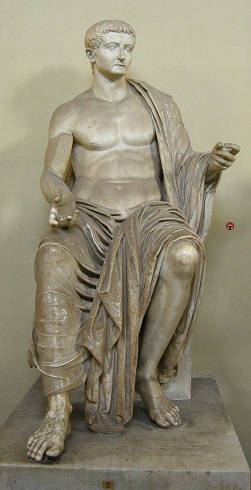
Tiberius was very cruel, led much bloodshed, disrespected Senates, and brutally executed them.
In contrast to such theories, it seemed inevitable that senators were treated with very high respect by Tiberius, and only the ones accused of moral treason or crime were executed.
Senates were the partners in Roman governance alongside the emperor and balanced and checked their powers.
But later on, Senates were subservient to the emperor as partnerships between Senators and emperors converted into single-handed rule by the emperor only.
Any offense or threat made against the emperor resulted in a crime, and Tiberius enforced treason laws that were looked after by spies.
Conclusion
Tiberius was not a renowned figure among his people, and especially the portrayal by Tacitus as a gloomy tyrant.
He was indeed one of the most critical military men who contributed to annexing lands into Rome.
Likewise, he improvised administrative rules to better Roman governance and cut down on corruption and financial deficit.
Tiberius laid a founding stone for the formation of the massive economic Roman empire in the first century.
He ensured autocratic monarchical rule for the future Roman monarchs through his treason laws and Imperial cult.
